Filter by
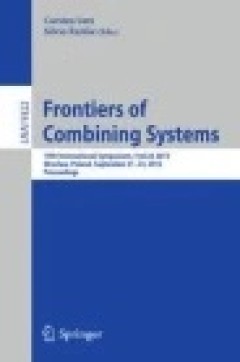
Frontiers of Combining Systems
This book constitutes the proceedings of the 10th International Symposium on Frontiers of Combining Systems, FroCoS 2015, held in Wroclaw, Poland, in September 2015. The 20 papers presented in this volume were carefully reviewed and selected from 34 submissions. They were organized in topical sections named: description logics; theorem proving and model building; decision procedures; decisio…
- Edition
- -
- ISBN/ISSN
- 978-3-319-24246-0
- Collation
- XVI, 275
- Series Title
- Lecture Notes in Computer Science
- Call Number
- -
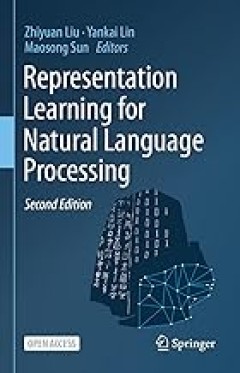
Representation Learning for Natural Language Processing
This book provides an overview of the recent advances in representation learning theory, algorithms, and applications for natural language processing (NLP), ranging from word embeddings to pre-trained language models. It is divided into four parts. Part I presents the representation learning techniques for multiple language entries, including words, sentences and documents, as well as pre-train…
- Edition
- -
- ISBN/ISSN
- 978-981-99-1599-6
- Collation
- -
- Series Title
- -
- Call Number
- -
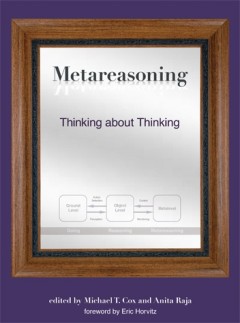
Metareasoning: Thinking about Thinking
This text offers a simple model of reasoning about reason as a framework for its discussions. Following this framework, the contributors consider meta-level control of computational activities, introspective monitoring, distributed meta-reasoning, and, putting all these aspects of meta- reasoning together.OCLC-licensed vendor bibliographic record.
- Edition
- -
- ISBN/ISSN
- 9780262295284
- Collation
- 1 online resource (vi, 340 pages) :illustrations
- Series Title
- -
- Call Number
- -

Do the Right Thing: Studies in Limited Rationality
The authors argue that a new theoretical foundation for artificial intelligence can be constructed in which rationality is a property of "programs" within a finite architecture, and their behavior over time in the task environment, rather than a property of individual decisions.Like Mooki, the hero of Spike Lee's film "Do the Right Thing," artificially intelligent systems have a hard time knowi…
- Edition
- -
- ISBN/ISSN
- 9780262282772
- Collation
- 1 online resource (xx, 200 pages) :illustrations.
- Series Title
- -
- Call Number
- -
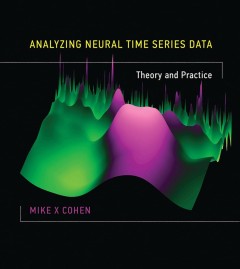
Analyzing Neural Time Series Data: Theory and Practice
"This book offers a comprehensive guide to the theory and practice of analyzing electrical brain signals. It explains the conceptual, mathematical, and implementational (via Matlab programming) aspects of time-, time-frequency- and synchronization-based analyses of magnetoencephalography (MEG), electroencephalography (EEG), and local field potential (LFP) recordings from humans and nonhuman ani…
- Edition
- -
- ISBN/ISSN
- 9780262319553
- Collation
- 1 online resource (xviii, 578 pages, 16 unnumbered pages of plates) :illustrations.
- Series Title
- -
- Call Number
- -
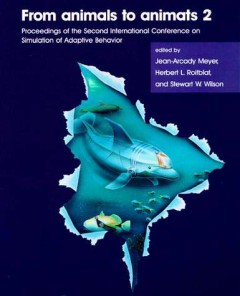
From Animals to Animats 2: Proceedings of the Second International Conference…
"A Bradford book."More than sixty contributions in From Animals to Animats2 by researchers in ethology, ecology, cybernetics, artificial intelligence, robotics, and related fields investigate behaviors and the underlying mechanisms that allow animals and, potentially, robots to adapt and survive in uncertain environments. Jean-Arcady Meyer is Director of Research, CNRS, Paris. Herbert L. Roitbl…
- Edition
- -
- ISBN/ISSN
- 9780262287159
- Collation
- 1 online resource (x, 523 pages) :illustrations.
- Series Title
- -
- Call Number
- -
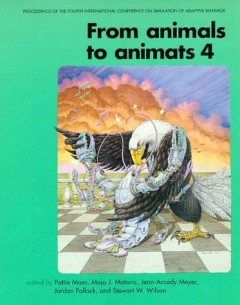
From Animals to Animats 4: Proceedings of the Fourth International Conference…
"A Bradford book."The Animals to Animats Conference brings together researchers from ethology, psychology, ecology, artificial intelligence, artificial life, robotics, engineering, and related fields to further understanding of the behaviors and underlying mechanisms that allow natural and synthetic agents (animats) to adapt and survive in uncertain environments. The work presented focuses on w…
- Edition
- -
- ISBN/ISSN
- 9780262291316
- Collation
- 1 online resource (xii, 644 pages) :illustrations.
- Series Title
- -
- Call Number
- -

From Animals to Animats 5: Proceedings of the Fifth International Conference …
"A Bradford book."The Animals to Animats Conference brings together researchers from ethology, psychology, ecology, artificial intelligence, artificial life, robotics, engineering, and related fields to further understanding of the behaviors and underlying mechanisms that allow natural and synthetic agents (animats) to adapt and survive in uncertain environments. The work presented focuses on w…
- Edition
- -
- ISBN/ISSN
- 9780262291385
- Collation
- 1 online resource (xvi, 564 pages) :illustrations.
- Series Title
- -
- Call Number
- -

From animals to animats 6: proceedings of the Sixth International Conference …
"A Bradford book."OCLC-licensed vendor bibliographic record.
- Edition
- -
- ISBN/ISSN
- 9780262316071
- Collation
- 1 online resource (xiii, 540 pages) :illustrations.
- Series Title
- -
- Call Number
- -

From Animals to Animats 7: Proceedings of the Seventh International Conferenc…
The Simulation of Adaptive Behavior Conference brings together researchers from ethology, psychology, ecology, artificial intelligence, artificial life, robotics, computer science, engineering, and related fields to further understanding of the behaviors and underlying mechanisms that allow adaptation and survival in uncertain environments. The work presented focuses on robotic and computationa…
- Edition
- -
- ISBN/ISSN
- 9780262316071
- Collation
- 1 online resource (xi, 420 pages) :illustrations
- Series Title
- -
- Call Number
- -
 Computer Science, Information & General Works
Computer Science, Information & General Works  Philosophy & Psychology
Philosophy & Psychology  Religion
Religion  Social Sciences
Social Sciences  Language
Language  Pure Science
Pure Science  Applied Sciences
Applied Sciences  Art & Recreation
Art & Recreation  Literature
Literature  History & Geography
History & Geography